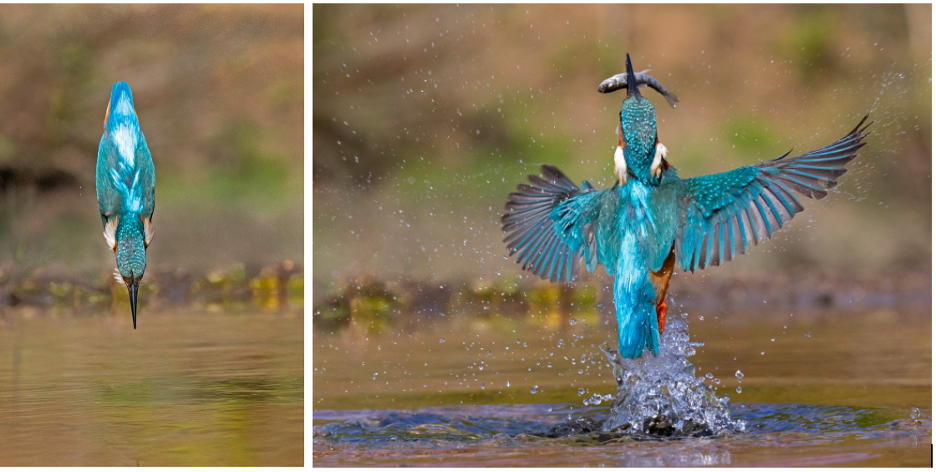In the article posted by Science News we see a great article about Kingfisher birds. There are over 90 Kingfisher species ranging across 3 families, and they are known for their unusual hunting techniques. As a medium-sized bird, they are known to wait very still above the water. Once they find their prey, they make a free-fall nose dive into the water usually no deeper than 12 inches. That's where the genetics come into play.
These birds have different genetics than most other birds. They have discovered genes related to brain functions have mutated, and so have their retina and blood vessel development. It's not fully understood exactly how this protects these birds, but the adaptation of certain species has definitely protected their heads on the dive to their prey. This dive would cause a human to have a concussion, so how does this not affect the bird? They studied 30 samples, some from those who dive and some that don't, samples from all over the globe. They found 93 genes that signaled genetic change, and the one that stood out affected Tau proteins. These stabilize cell structure and make the bird more adapted to diving at such high velocity. More studies are required to have an exact understanding of this, but it sure is an amazing beginning.
I personally think this is amazing regarding evolution. We have an example of how this species has adapted over a change in time through genetic evolution to withstand their hunting technique. If we further study this genetic change in this species, this may help us understand neurological diseases in humans. The tau protein is believed to be interrelated with Alzheimer's disease. A more in-depth analysis of this genetic mutation or adaptation may be able to change what we know about other species and even ourselves.
Source 1: https://www.sciencenews.org/article/how-diving-kingfishers-avoid-concussions
Source 2: https://www.britannica.com/animal/kingfisher-bird



